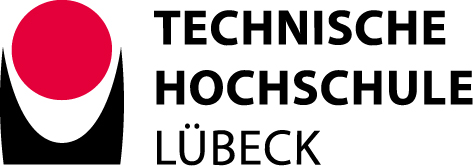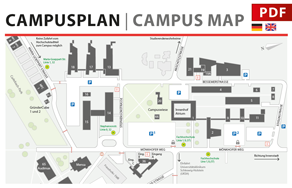Sustainable Building Technology, B. Eng.
- Teaching Content
The course content reflects the recommendations of the Architekten- und Ingenieurkammer Schleswig-Holstein (Association of Architects and Engineers in Schleswig-Holstein), the respective professional bodies and engineers working in this field.
During the first six semesters the Bachelor's degree program Sustainable Building Technology is divided into two phases.1st-3rd semester Basic Studies
4th-6th semester Core Studies
During the basic studies, students acquire engineering and civil engineering fundamentals. These fundamentals prepare them for the higher semesters, in which they expand their knowledge.
During the core studies, the future engineers deal with the whole range of sustainable building technology, both theoretically and hands-on in practical projects.
During the seventh semester, students complete a 12-week professional internship and subsequently work on their 6-week final thesis.
- Aims
On completion of their studies, our engineers have both theoretical and methodological skills as well as application-oriented knowledge of building technology and the sustainable planning, construction and operation of buildings. They are familiar with the technical and normative fundamentals of all trades of building technology. In addition, our graduates are also familiar with fundamental engineering principles and are aware of the correlations and interactions of building technology with the planning and construction of buildings.
Our engineers are used to working in teams during their studies and know about the different players involved in the planning and the implementation process and about potential interfaces. They are also aware of the economic and social effects throughout the entire life cycle of a building.
Im FB Bauwesen wird praxisnahes Wissen und alle notwendigen Fähigkeiten, um als qualifizierter Energieberater für Wohngebäude nach BAFA (*) tätig zu sein, vermittelt. Studierende haben die Möglichkeit in einem Wahlmodul diese Qualifikation zu erlangen.
Studierende im Studiengang NGB erwerben hierfür eine entsprechende Grundqualifikation und darüber hinaus eine fachliche Zusatzqualifikation.
(*) BAFA ist Das Bundesamt für Wirtschaft und Ausfuhrkontrolle ist eine Bundesoberbehörde im Geschäftsbereich des Bundesministeriums für Wirtschaft und Klimaschutz (BMWK).
- Degree
With the completion of the Bachelor's program, you receive a university degree that is recognized throughout Europe and attain the prerequisite for admission to the following Master's program.

Bachelor of Engineering, short B.Eng.
- Occupational Profile
Is it merely a vision that a house can manage without fossil energy and produce more electricity than the occupants consume?
It is not a vision, but already reality. However, planning such buildings is challenging and requires engineering knowledge and the ability to work as part of a team.
What will housing feel like in the future? The aim of the engineers is to create a sustainable and environmentally friendly building design. It should provide the occupants with fresh air, comfortable temperatures and pleasant lighting conditions. And all of that without fossil energy and with a minimum of electrical power.
Sustainable Building Technology engineers work in large, medium-sized and small engineering offices, companies or administrations. They work in a wide variety of fields, including the planning of electrical and air-conditioning systems, the supervision on construction sites, and the coordination between architects, structural engineers and other specialist engineers when it comes to building technology.
These include the planning of buildings of varying complexity: from individual residential or office buildings to complex research buildings and entire neighborhoods.
Global climate protection goals can only be met if both new and existing buildings make a significant contribution. Buildings can be renovated to be energy-efficient and can be supplied with locally available renewable energy. The goal is to achieve a zero-GHG energy supply for all existing buildings by 2050 at the latest. This requires young and motivated people with an interest in technology and natural sciences, as well as the application of mathematics and computer science.



